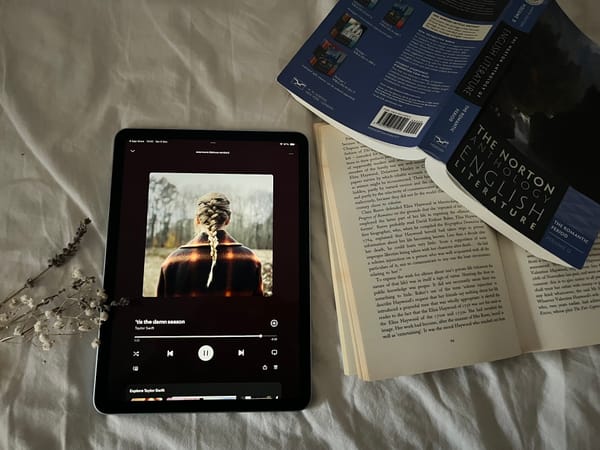Does our obsession with crime stories make us bad people?

It’s a typical week in the heart of November. Days are getting shorter and darker. Cold is seeping in. The pitter-pattering of the rain is here to stay. And so are crime stories. Because what’s better than curling up in bed with a good murder mystery after work or getting entangled in the web of a true crime on the daily commute?
From murder mysteries to true-crime podcasts and Netflix adaptations of famous cases, the crime genre has been steadily on the rise. Is this normal? How concerned should we be that the most popular TV shows are detectives or thrillers? Is this outpouring of true crime podcasts a worrying sign? Is there something wrong with us? As these questions flooded my mind, I realised I needed to look for proof that the world isn’t as rotten as it seems.
Adrenaline rush or the good stress
To begin with, the first and most immediate culprit of our addiction to the crime genre seems to be our biology. It’s the activation of the adrenaline hormone that makes us crave a good crime story. When adrenaline pours into our bodies, we feel alert. It's like an injection of energy. It gives us a jolt. We feel temporarily more alive. In other words, it's all about the 'good stress'. It’s the sort of stress that leaves you feeling positive and rejuvenated after experiencing a mild stressful event.
When we witness a crime from the comfort of our homes, we experience danger in such a small dose, which awakens our senses to the desired degree without leaving us feeling exposed or threatened. This means that by watching a crime series, for example, we get to experience the benefits of 'good stress'. We can leave the bad one safely tucked away at the workplace.
Intellectual stimulation
It’s not only our hormones that get a good old jolt, though. It’s also our brains. When reading a detective novel or watching a criminal case unfold, whether fictional or real, our minds get to work. We roll up our brain sleeves and try to come up with the answers ourselves before the detective reaches the end of the mystery thread. And if the crime happens to be unsolved, the intrigue only deepens, and we slip even more fully into the role of detective. It's like solving a puzzle, but the stakes are higher and so is the satisfaction when we find a fitting piece ourselves.

Fairy tales for adults
As paradoxical as it may sound, crime stories have the potential to alleviate fear. Let me explain. When we dive into a typical murder mystery, for example, we know that we are going to encounter a crime – an aberration of peace and normality – but we also know that there will be closure and peace will be restored. We enter into the archetypal conflict between good and evil, a battle deeply ingrained in our cultural DNA, looking for a place that echoes our worst fears and our most wishful thinking.
It's the crime story, whether fictional or real, that allows us the controlled environment we need, like children with fairy tales, where we can come face to face with our fears, while knowing that the killer will be caught and justice will prevail. It's a space where we can explore the dark side of humanity, yet still remember that hope awaits us at the end of the road.
Trauma recovery
Another seemingly paradoxical benefit behind consuming crime stories, especially true crime, is the potential for trauma healing. When people see their experience taking place on a page or on a screen, their trauma is triggered. This, experts say, could be the first step to recovery. When one is forced to face their trauma rather than shove it under the carpet, given they have the right guidance, one can start their healing journey. For others, it can act like a validation of their own experiences and pain. It can be immensely comforting to read about others who have been through similar experiences. People have felt their own voices heard. They felt less alone. Their experiences are justified.
Sense of community
Another unexpected benefit of engaging with crime stories is the sense of community they create. Perhaps not a motive to turn to crime narratives, but an important offshoot of engaging with true crime shows. A recent study in the British Journal of Psychology has shown that true crime podcasts can have a therapeutic effect for women who have fallen victim to violence. This happened because of the communities these podcasts had created that allowed women a safe space to work through their painful experiences.

Tasting the dark side
The battle between good and evil isn’t only part of our storytelling tradition, it is also deeply ingrained in our own psyche—the seed for good and bad lies within. No one is either good or bad. Anyone who has ever been through a bad day knows what that means. One day, we’re kind and smiling at everyone; the next, we snap at the slightest remark. Hopefully, no matter how irritated we are, most of us will never cross the borderline to murder. Long ago, a moral code was created to guard us against our own darkness. But what happened to the ones that broke the code? How could they have committed such abominable crimes? We are curious. We want to know why, we want to know how. What led them there? Could we even feel compassion towards them?
Evolution and the instinct for survival
Another reason for our heightened interest in crime narratives is our survival instinct. We are wired to look out for danger. It has always been in our genes to spot possible threats, dodge them and survive. When watching or reading a crime story, though, we know that the threat is not real. Besides the thrill of the adrenaline rush, we have a more practical use for these stories. We use the details in these narratives to collect information in case we need it in the future. This way, should a situation arise, we will know how the offender thinks and we will be one step ahead of them. And perhaps, if we understand what has happened to these individuals, if we dig deeply enough, could we even go as far as to try to rid the world of the suffering that created these monstrous beings?
Warnings & suggestions
Our collective interest in crime seems to have its role, after all. Not all is lost. Of course, there is a healthy amount of crime stories one can consume and reap the benefits of a good old adrenaline rush or get the intellectual satisfaction of solving a case, but once crime stories pervade your mind, a border has been crossed.
In short, there is a point where crime stories become "too much". This won't be the same for everyone. Some content might be more triggering for some than others. Keep in mind that if you’re grappling with past trauma that certain content could trigger, it’s important to have a support system before diving in.

Format also plays a big role. When one reads or listens to a podcast, for example, one can control the impact of a frightening scene more easily because imagination regulates the intensity. On the other hand, a visual representation as in film, series, or dramatization, may have a worse effect on the person’s emotional state.
There are quite a few perks to watching or reading about crime stories, and there is proof that we are not to blame for our morbid habit. Exploring humanity’s darker side can yield new knowledge about our world, and an occasional jolt of terror in the comfort of our home might even be good for us. Knowing your limits and stepping back the moment you feel your mood tilt can be a game-changer. Now you are fully informed and duly warned, which story will you pick up?
Sources
- Blair, G. (2021). 4 Reasons We Love Binging Crime Shows. Psychology Today.
https://www.psychologytoday.com/us/blog/school-thought/202102/4-reasons-we-love-binging-crime-shows - Nastasi, A. (2017). Why Are People Obsessed With True Crime? Hopes & Fears (Archived).
https://web.archive.org/web/20180216125802/https://www.hopesandfears.com/hopes/now/question/216997-why-are-people-obsessed-with-true-crime - Singh, A. (2021). Why Do We Love True Crime? Is It Healthy for Us? NBC News.
https://www.nbcnews.com/think/opinion/why-do-we-love-true-crime-it-healthy-us-ncna1269720 - Perchtold-Stefan, C., Rominger, C., Ceh, S., Sattler, K., Veit, S.-V., & Fink, A. (2025). Out of the Dark – Psychological Perspectives on People’s Fascination with True Crime. British Journal of Psychology. https://pubmed.ncbi.nlm.nih.gov/41058102/




